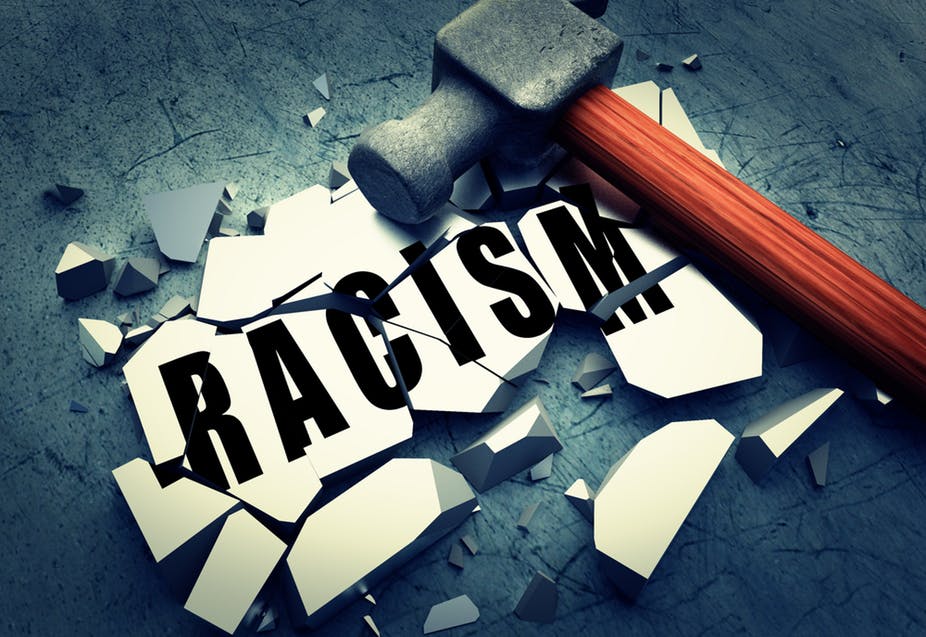
Anti-racism education arouses new awareness, action
By John W. Coleman
I considered myself fairly aware before joining Whites Confronting Racism, but the breadth and depth of what I learned was pretty amazing. Among the things I was struck by was the powerful subtlety of racism – how we as whites participate so much in its maintenance without even being aware of our participation.
— Rev. Mark Terry, Senior Pastor, Covenant UMC Springfield, PA
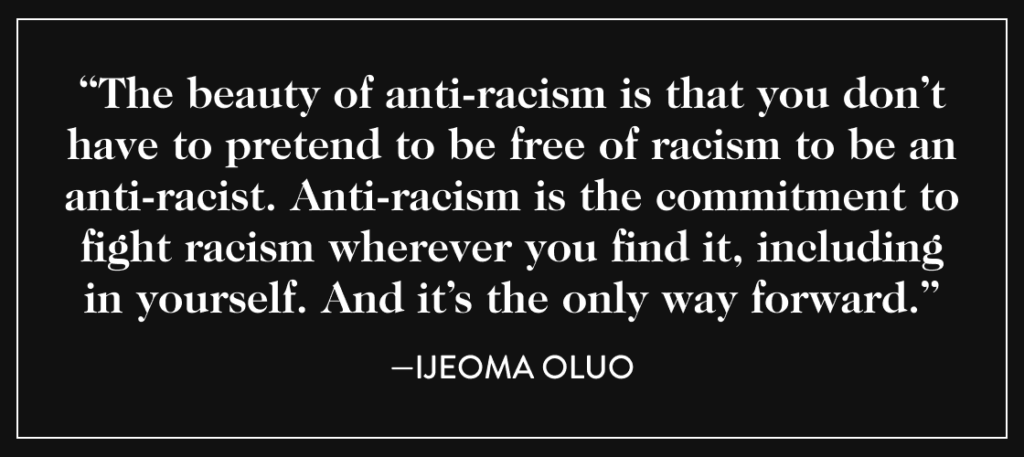
One Oxford English Dictionary definition of “confront” is “To face up to and deal with (a problem or difficult situation).” So, Whites Confronting Racism may seem aptly named for participants of this eye-opening, mind-expanding, soul-baring anti-racism educational experience. It’s an experience that is especially timely now in our nation’s current racial turmoil and hoped-for transformation.
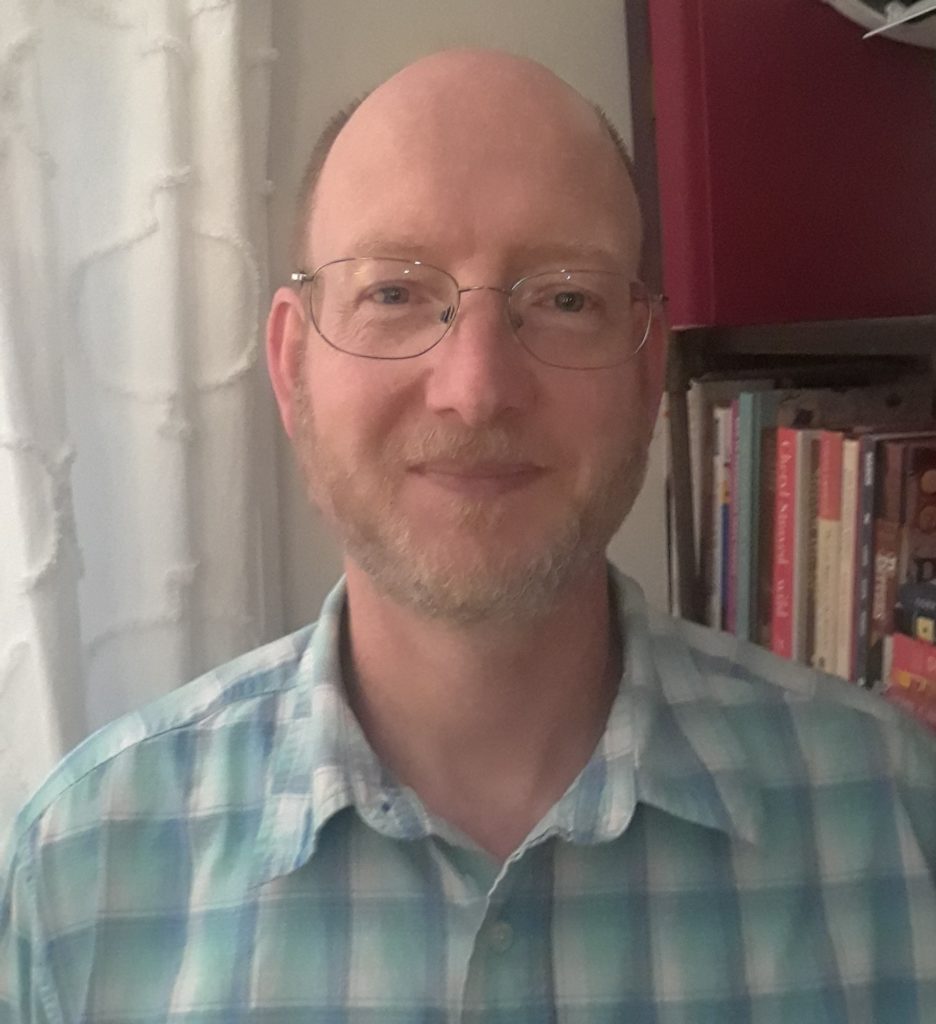
The Rev. Mark Terry is one of 15 Eastern PA Conference clergy and one young adult missionary—all White persons—who went through the intensive, three-session training—nine days total—in March, July and September 2019. Included were extensive reading, challenging discussions and exercises, homework assignments and more in-depth, interactive work among small groups that continues even now.
“The workshops and readings have opened my eyes (not fully yet, I know – we all have blind spots) to where I am maintaining the social contract that allows racism to persist; and I also have a greater awareness of my inner oppressor who is trying to stop me from breaking that contract,” writes Terry in a short essay. His was one of nine reflections penned by participants on the deepening impact of this unique training experience.*

Understanding White Supremacy
“I also feel I have better tools to help move white people past the simplistic understanding of racism (that is, racism is bad feelings that bad people have) to a deeper understanding of the foundational concept of white supremacy that infects all levels of our society with racism.”
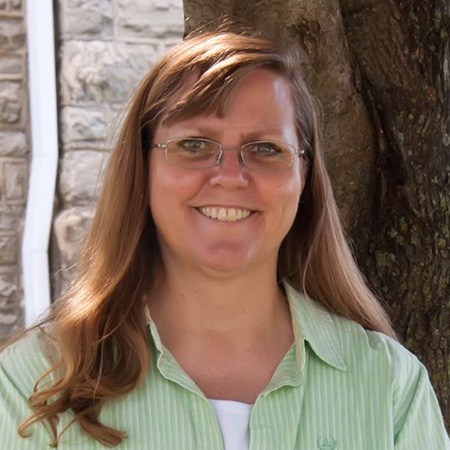
“I’m grateful for the program and the impact it’s had on me and my ministry,” writes the Rev. Shauna Ridge, pastor of Thorndale UMC, who joined out of “concern for the growing tension around racism, and after hearing more frequently that white people need to do their own work.”
She and other group members encountered and examined once-obscure but now more familiar racial terms and realities like implicit bias, White fragility and micro-aggressions. What is emerging for most is a desire to influence other White people to confront injustice in the social systems that favor them and to become conscientious allies of People of Color.
“The work of dismantling racism is for white people to do,” writes Ridge, calling it “spiritual work” that one cannot do alone. “It can be overwhelming, and change comes slowly. I’ve spent more time building relationships with People of Color in my church and in the community. I choose books and movies differently. I’m attending more workshops on injustice. I’m more aware of my skin color and race, and the opportunities and privilege they’ve afforded me.”
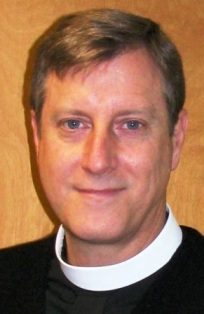
The Rev. Robin Hynicka, pastor of Arch Street UMC in Philadelphia, introduced the Whites Confronting Racism (WCR) program to fellow Eastern PA clergy, after experiencing it at POWER, the Philadelphia-based, anti-racism, and justice organizing coalition that has expanded into cities and suburbs across the region.
Hynicka applied and received funds for the training from the UMC’s General Commission on Religion and Race. But continuing education funds also came from the Conference’s Board of Ordained Ministry and from participants and their churches.
Lorraine Marino, an organizational and leadership development consultant, co-created WCR and its impressive anti-racism curriculum with her colleague Antje Mattheu in the mid-1990s. In their cultural diversity work for organizations, Marino said, they often heard People of Color complain about always having to teach White people about racism, when “White people should do their own anti-racism work…. But as White persons, we must have the ability to look at ourselves honestly without feeling like we’re horrible people.”
Eliciting growth instead of guilt
Much of that revealing but non-shaming racial honesty happens in cohorts and triads, small groups where members can confront racism together, challenging and supporting one another in ways that elicit growth instead of guilt.
“I have a new set of lenses through which I look at my community now,” said the Rev. John Keretzman, who lives in Cresco and serves Mountainhome and Canadensis UMCs. I now see how segregated our township is. There are People of Color in my neighborhood; but when I look at key social systems of our township—the Fire Company, the Rotary Club, the Historical Society—there are no People of Color there. That was eye-opening for me.”
Engage with others in anti-racism work
“We want to engage people in our Conference who are committed to anti-racism work and help them become influencers in the church and community circles where they belong,” Hynicka said.
The Rev. Tamie Scalise, pastor of Calvary UMC in Mohnton, has joined the Conference Commission on Religion and Race. A WCR team reported to the commission about their learning experience last fall. And WCR members want to work with other ministry groups and become allies in solidarity with committees and caucuses addressing racial-ethnic concerns.
“We want to be held accountable for the work we do, as we confront racism personally and within this conference and in the world,” Hynicka said. Indeed, accountability is a key commitment, mentioned often by members in a recent group interview.
“All of us would say this has been an effective use of our time and resources,” said the Rev. Andrea Brown, pastor of Grandview UMC in Lancaster. “We are better equipped now for the (anti-racism) work that people in our congregations are hungry for.”

As the Rev. Jenny Freymoyer tackles that work amidst the current racial confrontations roiling our nation’s status quo, she is “glad that I have this formative experience and this support group.
“I know in my context I would not have preached the sermon I preached the Sunday after George Floyd was murdered without this group and without the courage this experience has given me.” Freymoyer serves Salem UMC in Shoemakersville. “I would not have been sending out daily messages of encouragement or talking about Juneteenth (a national holiday commemorating the end of slavery in 1865, after the Civil War). I would have been afraid of causing trouble.”
Training has prepared us for this time
The Rev. David Tatgenhorst, pastor of St. Luke UMC in Bryn Mawr, agrees. “I feel this training has prepared us for this time, when folks in our churches and communities are more open to hearing and using phrases like ‘Black Lives Matter.’ They realize why it’s important, and they are ready to take the next step.
“I think there really is a thirst now for people to deepen their understanding of racism,” said Tatgenhorst, a founding member of POWER’s contingent in the prosperous suburbs of Lower Merion County. “I think this group, because of the connections we have, has something to say in our Conference. And we can help bring anti-racism to the forefront because we know we have each other’s back, and that really is a wonderful thing.”
*Read the nine, short but inspiring essays by participants, titled “How the Whites Confronting Racism Program Impacts Me, My Church, and My Community.”
